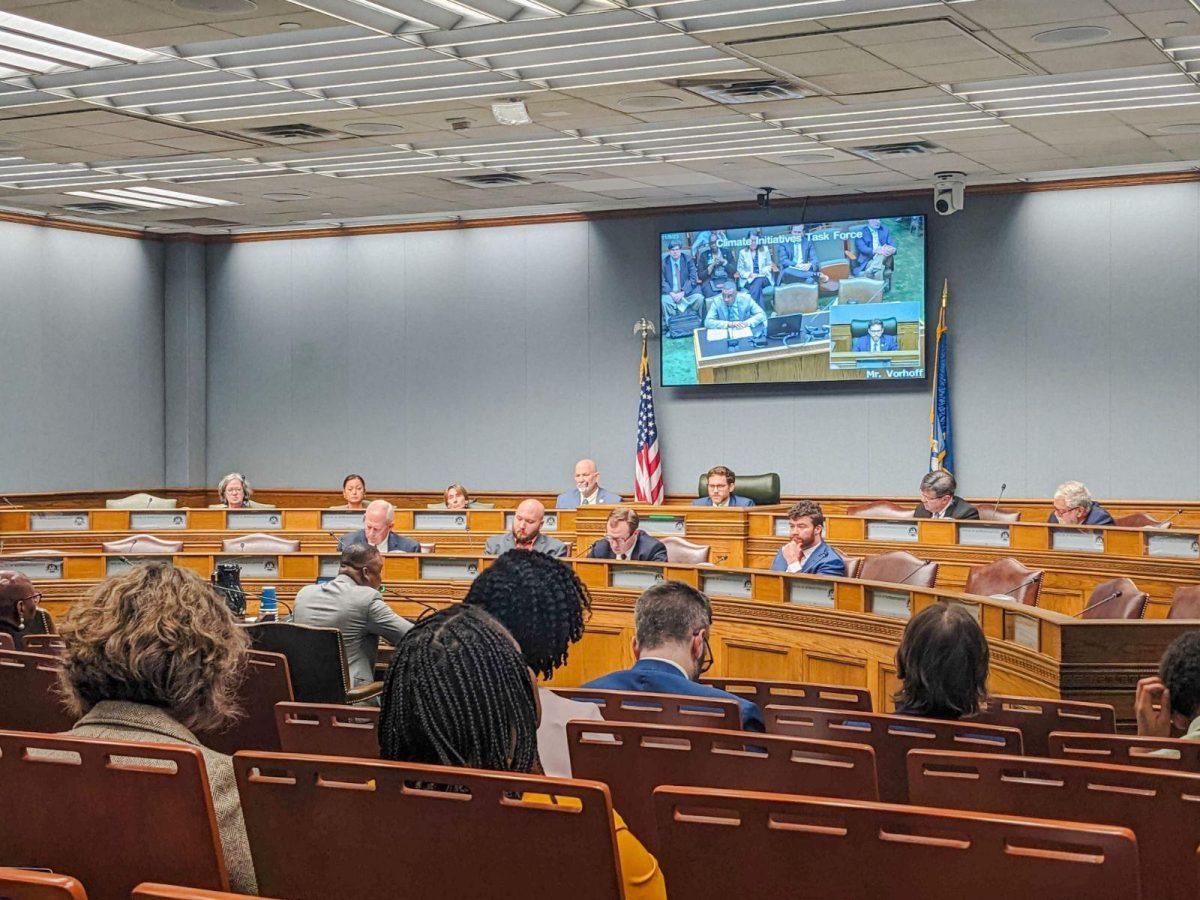With coastal erosion and rising sea levels threatening to swallow the state, many Louisiana residents are familiar with the effects of climate change.
It was with these issues in mind that Gov. John Bel Edwards formed the Climate Initiatives Task Force in 2020—Louisiana’s first-ever foray into studying and forming strategies to reduce the state’s greenhouse gas emissions.
Now, Edwards is leaving office, and three years after its inception, the task force held its final meeting Thursday under Edward’s administration.
As Gov.-elect Jeff Landry plans his transition into office, the future of the task force is unknown.
READ MORE: International Student Association Festival of Nations brings the world to LSU
Shortly after winning his second term as governor, Edwards formed the Climate Initiatives Task Force by executive order in August 2020.
“Louisiana’s working coast is a national treasure,” the order reads, going on to explain the economic, ecological and sociological importance of the region.
The order also points to the fact that Louisiana’s coast is experiencing one of the fastest rates of land loss in the world.
“… [T]o improve our resilience, sustain our coast, and help avoid the worst impacts of climate change,” the order continues, “Louisiana must proactively work to reduce the greenhouse gas emissions that are driving up global temperatures, rising sea levels, and increasing the risks that threaten our health and safety, quality of life, economic growth, and vital habitats and ecosystems.”
The Climate Initiatives Task Force’s stated goal was to comment on ongoing efforts to reduce greenhouse gasses in the state and recommend further policies, strategies and incentives.
In 2022 the task force submitted a Climate Action Plan to the governor, outlining the steps that could lead Louisiana to net-zero carbon emissions by 2050.
Two-thirds of Louisiana’s greenhouse gasses come from the industrial sector—a sharp figure, given that the national industrial sector accounts for 17% of the country’s total emissions, according to data used by the Climate Action Plan.
The plan found electrifying Louisiana could usher in a greener future.
“Louisiana’s ultimate success will hinge upon a holistic and coordinated approach to these three interconnected policy pillars: renewable electricity generation, industrial electrification, and industrial fuel switching to low and no-carbon hydrogen,” the plan reads.
Aside from the industrial sector, 19% of Louisiana’s greenhouse gasses are produced by transportation, 13% by electrical power, 1% by residential and 1% by commercial sources, according to data from the plan.
The Climate Initiatives Task Force used its last meeting under the Edwards administration to give updates on efforts to lower the state’s emissions, reflect on its accomplishments and make plans for the future.
“I think we can all agree that this effort could not have been more important or more timely, and the riskiest thing for us to do would have been to ignore not just climate change but the energy transition and not be able to participate in it and benefit from it,” Gov. Edwards said. “The energy transition is going to take place with or without our participation, and so we might as well get out in front of it, shape it and maximize the benefits that we can achieve.”
READ MORE: ‘Taking A Stand for Humanity’ protest calls for Israel-Hamas ceasefire, LSU action
Given that Louisiana is an energy producing state reliant on fossil fuels, it has an important role to play in the climate’s future, Edwards said.
“Our economy and workforce is historically and currently driven by oil and gas and petrochemical manufacturing, and those sectors remain important,” Edwards said. “The good news for us is the most carbon-advantaged barrel of oil produced anywhere in the world is produced in Gulf of Mexico, and it’s produced under environmental regulations that we determined, that we enforced, and then that oil isn’t transported very far before we can refine it and so forth. And so, as long as we’re going to be consuming oil in this world, we might as well be doing it in the Gulf of Mexico with all of those benefits.”
Edward’s attributed the success of the task force to its economic approach, focusing on investment opportunities in green energy while reducing greenhouse gasses from Louisiana’s fossil fuel industry.
With Gov.-elect Jeff Landry’s administration on the horizon, the future of the Climate Initiatives Task Force remains uncertain.
At a 2018 press conference, Landry called global warming and climate change a “hoax.”
Still, the task force hopes to continue its advocacy for a net-zero Louisiana by 2050 under the Landry administration.
“We would like to think that there has been a lot of broad base support within government, within the private sector, where the momentum will carry forward through the transition,” Deputy Director Harry Vorhoff said.





